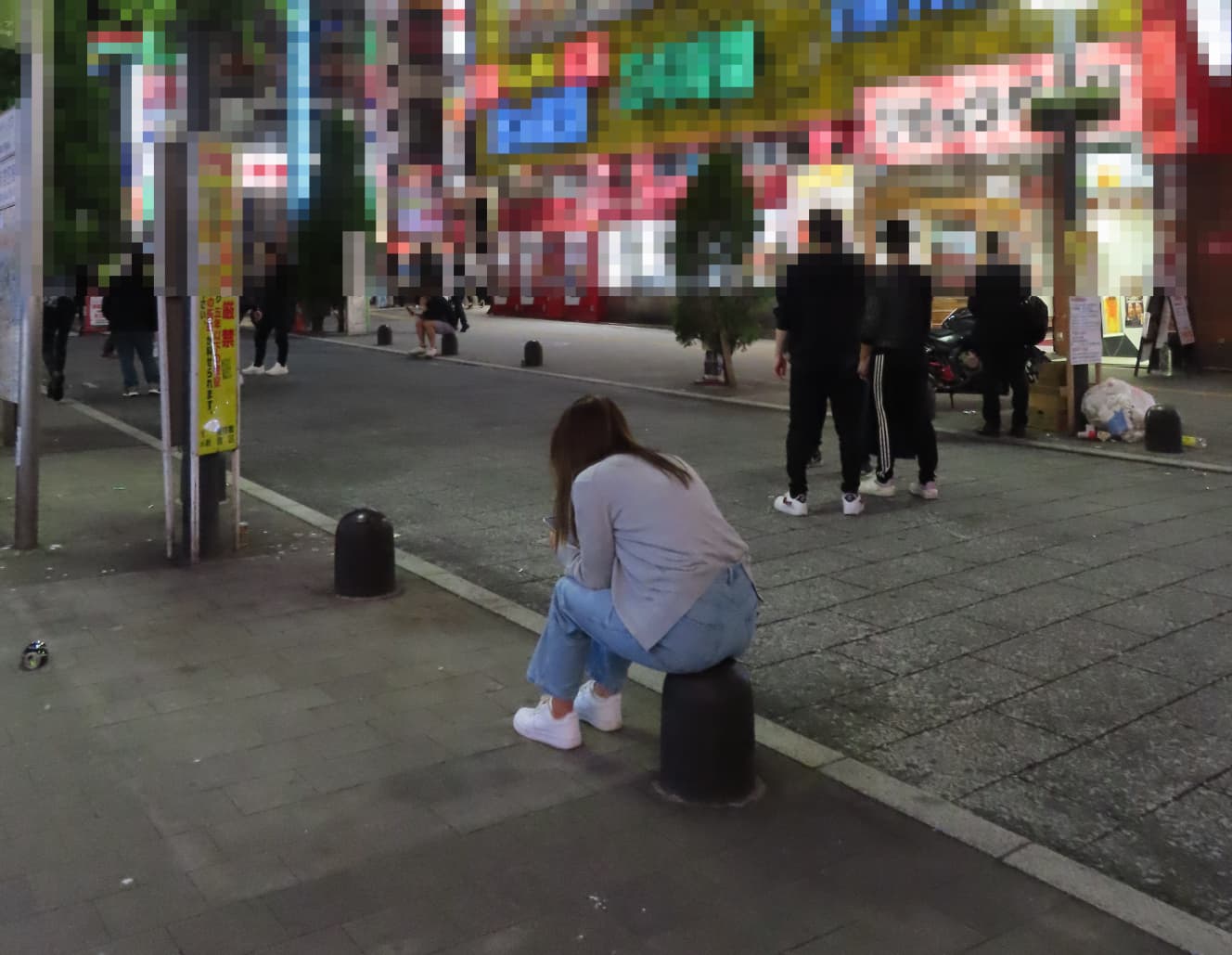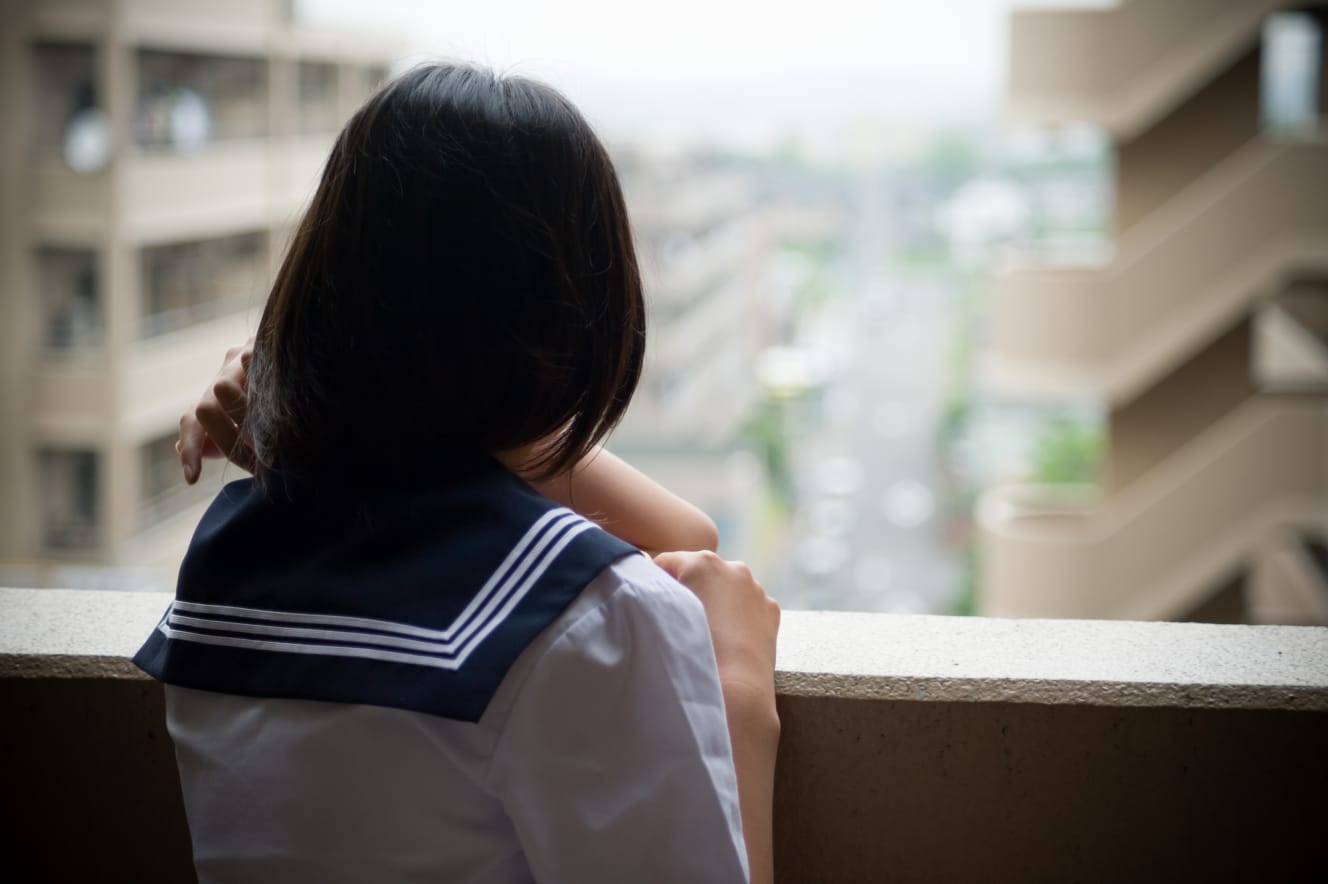A 20-year-old boy “wants to drink mother’s milk”…A “make-up & values override” experience that reawakens young people who have lost their way.
Nonfiction writer Kouta Ishii takes a close look at the reality of "Young Homeless," young people who have lost their homes!
Young people who have lost their homes and are on the streets. In their hearts are the holes in their hearts that were left because they were not given affection when they were young, and the distorted values that arise from a sense of victimization.
We would like to interview Ms. Prayer Yamashita, representative of the NPO “Tonaribito,” which supports such young people in Kumamoto, following on from Part 1: “A 15-Year-Old Girl Who Was Neglected,” a graphic account of the reality of the situation.
In recent years, the government has been focusing on the prevention of abuse and poverty. However, it is doubtful how many places are actually available to help victims.
As we have seen in this series, the government has established facilities such as child guidance centers, children’s homes, and maternal and child living support facilities throughout Japan. However, these facilities do not necessarily provide a safety net for all young people.
For example, children in difficulty may engage in prostitution, shoplifting, or robbery on the streets at night after leaving home. Or, in search of a place to sleep and momentary affection, they go from place to place with people they have met through video games or social networking sites.
Yankees and bikers of the past are now ……

For them, these acts are a way to survive on their own. However, in the eyes of society, they are considered “delinquent” and subject to attention and punishment. This makes it difficult for young people to fit into the facilities provided by the state.
What Tonaribito is doing is a project that can serve as a safety net for these young people.
In addition to providing counseling services and a place to stay as described in Part 1, Tonaribito also operates a shelter as a temporary refuge and a self-support shared house project that provides housing and support on a year-to-year basis. The former has a capacity for one person (up to four people are allowed, limited to siblings, etc.), while the latter has a capacity for six people (men and women).
Yamashita says, “Our self-support share house ‘IP House’ is a place for people who want to live independently.
Our self-support share house, IPPO, provides housing for one year in principle. Since the establishment of the share house, there have been more boys living there, accounting for 60% of the total number of residents.
I think that in the past, yankees would stay at the house of a bad senior after leaving home, or enter the dormitory of a construction-related company, and hang out with their buddies at night. But today’s kids are not so strong. They don’t form groups like biker gangs, they don’t rebel against society, and they are not good at working and trying to become independent while getting angry at their bosses in the construction industry. In that sense, boys may be more likely to lose their housing than girls with jobs such as prostitution or the water trade.”
It is true that until a generation ago, boys who were called “delinquents” were the strong ones among young people, forcing themselves to create a place for themselves by suppressing others. Today’s youth, however, are the opposite. They are unable to get along with others, they hide their desires and goals, and they stumble over trivial matters and are unable to stand up for themselves.

Why is this happening? Yamashita believes that changes in the environment surrounding young people are behind this.
Families today are closed and there is very little room for values other than those of the parents to enter. As a result, children are more likely to be exposed to abuse and other negative influences from their parents. When this happens, children escape to two-dimensional worlds such as video games and social networking sites, where there are no proper solutions and they cannot develop the ability to overcome the situation on their own. As a result, they are unable to become self-reliant, and as soon as they leave home, they find themselves adrift.
It is common for these young people to use online games and social networking sites when fleeing from home. As mentioned in [Part 1], they consider their SNS followers as “friends” even though they do not know their faces or real names. Therefore, if they are told to “come to my house” or “stay over” when they make an SOS, they will follow them without any doubt.
In the case of girls, this often leads to sexual crimes, but in the case of boys, when they go there, they may find that it is a woman who is suffering from the same kind of problems and is mentally ill. When this happens, they don’t get along and are evicted from their apartments and become homeless.
They have trouble trusting people.”

Yamashita says, “The girls who come to us often say, ‘I don’t trust people.
The children who come to us often say, ‘I don’t trust people. They have been hurt so much by adults, including their parents, that they don’t know who to trust. They don’t know who to trust, so they don’t have trust or hope.
I think it is precisely such children who need to be given opportunities for “make-up experiences” and “overriding values. I try to stabilize their lives as much as possible and fill the hole in their hearts by providing them with love on behalf of their parents so that they can live their lives taking care of themselves.”
Filling the holes in these children’s hearts is no easy task. Children who have known no love at all will demand a great deal of love in return.
Boys around the age of 20 will complain that they want to hold hands, hug you, or pat your head, and some of them even ask to drink breast milk. They probably want the deep affection of being held in ecstasy while sucking their fingers.
Regardless of the extent to which we accept their requests, if their hearts are filled with love and affection, they will have hope for life and will think about adapting to society.

Yamashita continues.
Yamashita continues, “What we try to do is let them decide for themselves and let them make their own mistakes. What kind of part-time work they will do, when and how much they will spend the money they earn, and where and how they will live. They have to think and act by themselves.
The world is not that easy for a teenager who graduated from junior high school or high school. It is natural for them to stumble. Therefore, I think it is necessary to let them make their own decisions and make their own mistakes to find out what kind of person they are, what kind of skills they need to develop, and what kind of work they are suited for.
If it is something that someone else has chosen, they will blame that person when they fail. But if they choose it themselves and fail, it is their own fault. So they have to try again. It is through this kind of accumulation that we make them develop the skills they need to live in society.”
Sooner or later, young people will have to go out on their own. At that time, they will definitely need a job.
Tonaribito operates “Shokushin Oyasama Net,” a network of companies that actively employ young people in need. The registered companies include farmers, nursing care providers, beauty salons, sheet metal painting companies, and many others. The managers of each company understand the circumstances of the young people, so they work closely with Tonaribito and follow up with them appropriately.
‘Well, let’s try the next one.

Of course, many of them still quit halfway through the program. However, Tonaribito staff members do not say to them, “Why did you quit?” as if they were blaming them, but instead say, “Well, that’s right. Well, let’s try again.” Instead, they respond with the attitude, “Well, let’s try again.
It is natural for people to quit when they sound off on a job. That is why the company believes that the young people’s lives will become easier if they can find a job that suits them as they move from one company to another, whether it is five or ten companies.
Yamashita said.
Yamashita says, “In the course of our activities, I feel that our organization’s projects are just a small basket (safety net) placed downstream from the river. We are really only supporting a few people. I would like to support many people by supporting families upstream and providing a bigger basket.
Nowadays Japan says ‘children are the treasure of the nation,’ but I don’t think they are treating them as a treasure. In the U.S., where I lived, they not only give out free pills and free births to people with low incomes, but also give food tickets to mothers so they can get the nutrition they need. The accessibility to government offices is also very different. If Japan is to truly care for its children, it will have to change the very infrastructure of its society.
This may be true in some respects. However, in Kumamoto, there is no organization other than Tonaribito that has a shelter or shared house for young people and provides support. In that sense, Tonaribito’s efforts may be small, but they will be a big step forward in the future.
Recently, it is said that an increasing number of young people connected to Tonaribito are voluntarily buying help or turning to the support side. In this way, small steps will steadily become big ones.
Interview and text: Kota Ishii
Born in Tokyo in 1977. Nonfiction writer. He has reported and written about culture, history, and medicine in Japan and abroad. His books include "Absolute Poverty," "The Body," "The House of 'Demons'," "43 Killing Intent," "Let's Talk about Real Poverty," "Social Map of Disparity and Division," and "Reporto: Who Kills the Japanese Language?
